Reading skills development Alphabet Worksheets for Ages 3-9
8 filtered results
-
From - To
Enhance your child's reading skills with our engaging Alphabet Worksheets designed specifically for ages 3-9. These interactive worksheets provide a fun and effective way to help young learners master the alphabet, improve phonemic awareness, and build essential reading foundations. Each worksheet is thoughtfully crafted to captivate children’s attention while promoting literacy through playful activities such as tracing letters, sound recognition, and word association. Ideal for both classroom and homeschool settings, our Alphabet Worksheets offer a comprehensive tool for educators and parents alike. Foster a love for reading in your little ones today and set them on the path to literacy success!
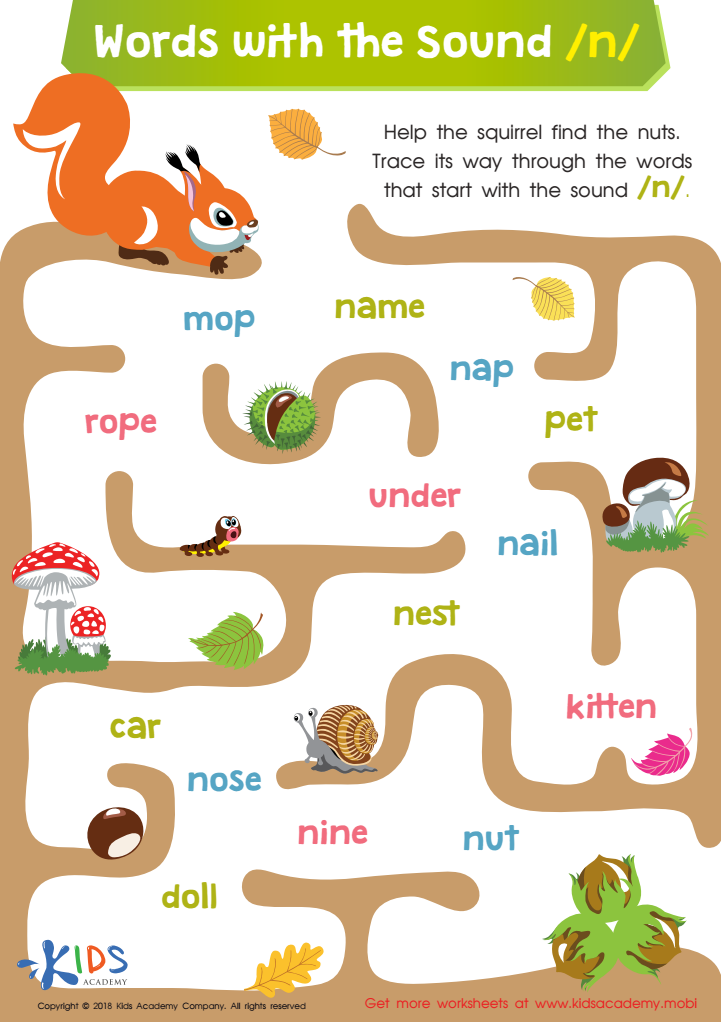

Words with Sound N Reading Worksheet
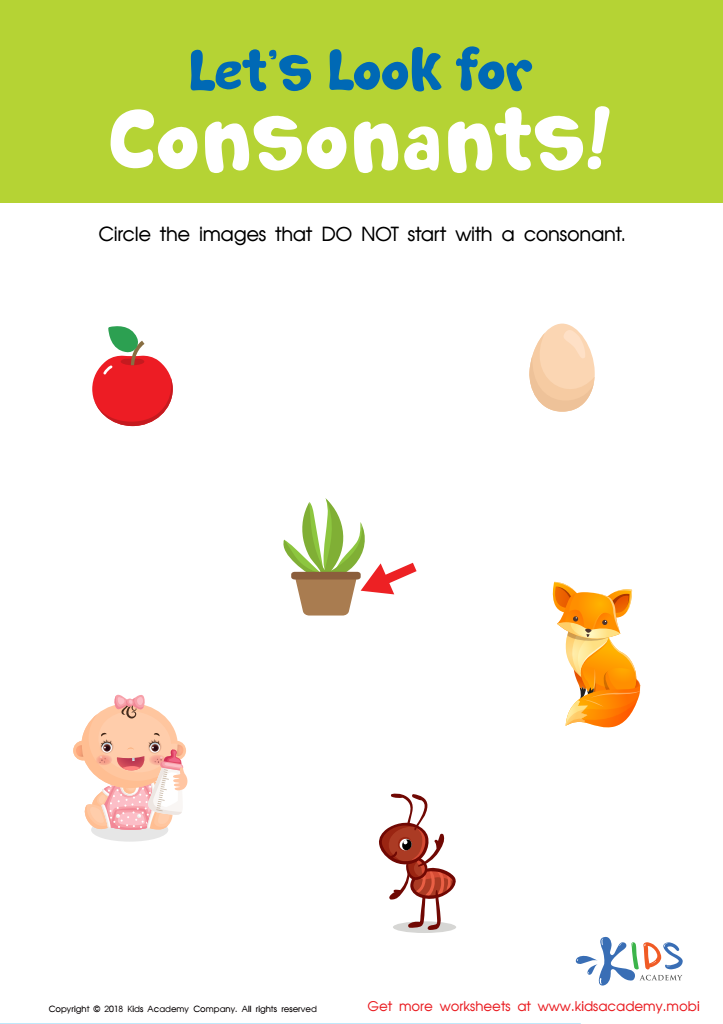

Let's Look for Consonants Worksheet
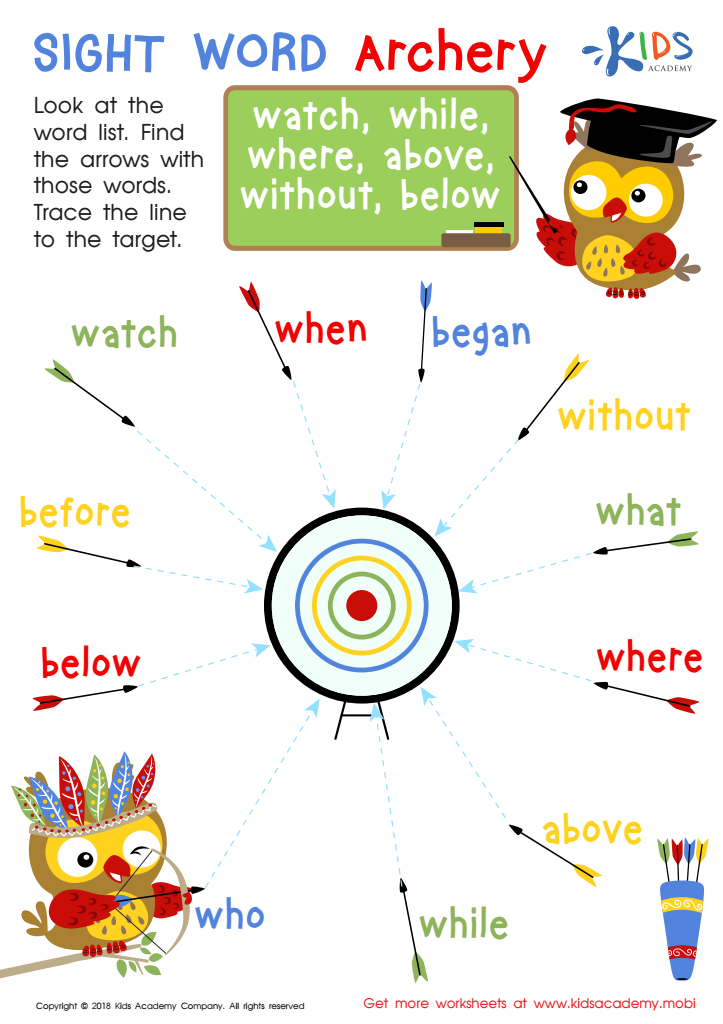

Sight Word Archery Worksheet
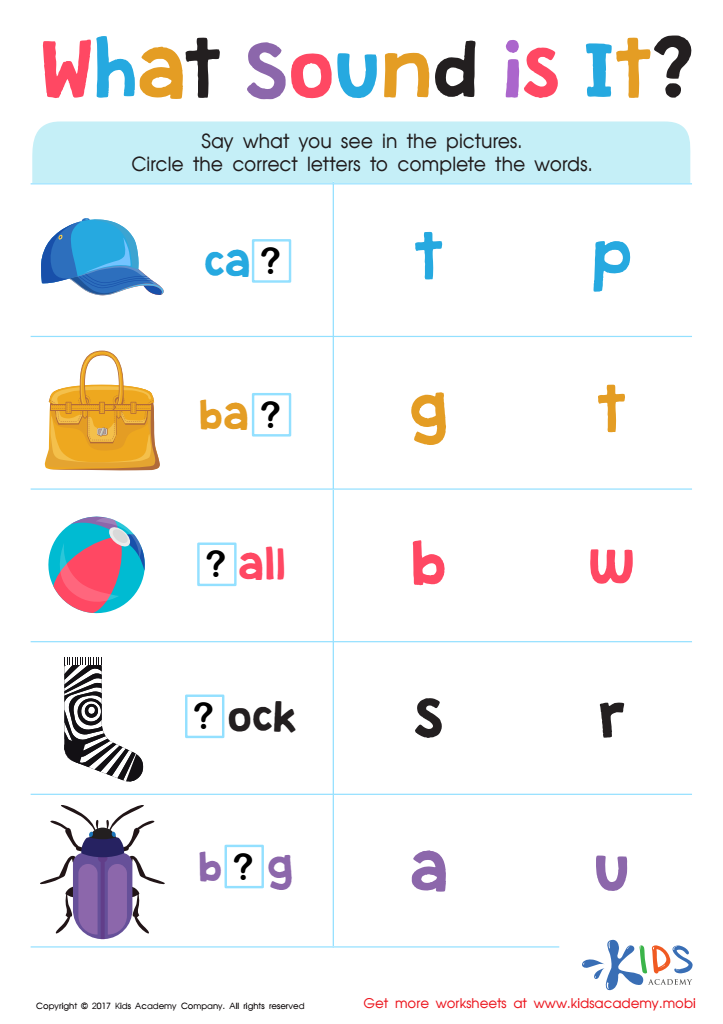

What Sound Is it? Worksheet
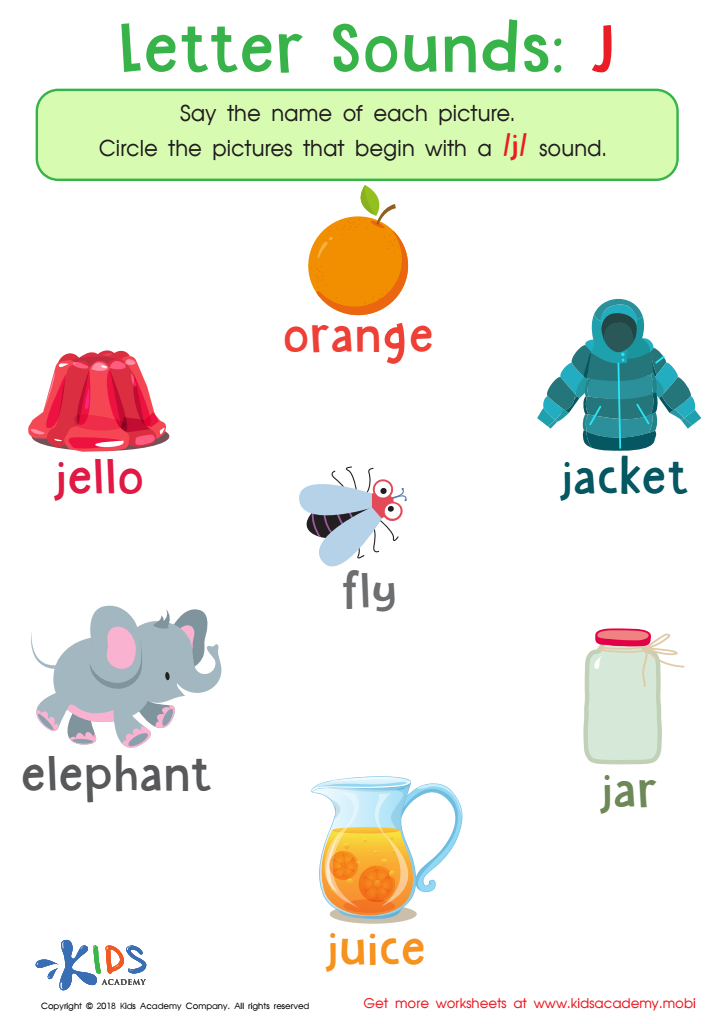

Letter Sounds: J Printable Worksheet
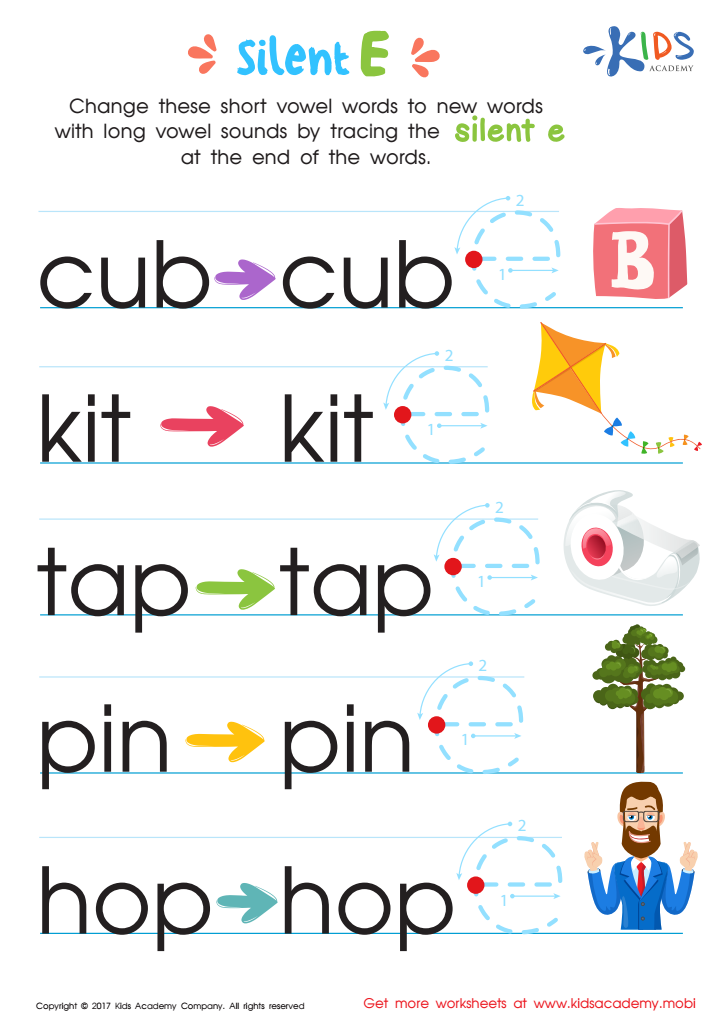

Silent E Words Worksheet
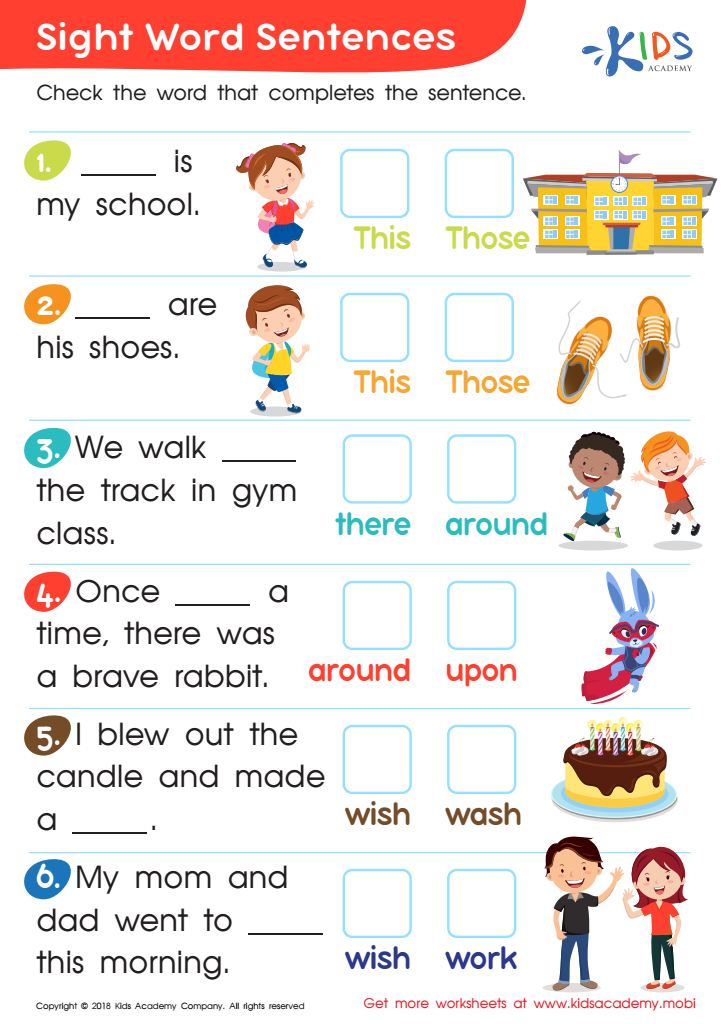

Sight Word Sentences Worksheet
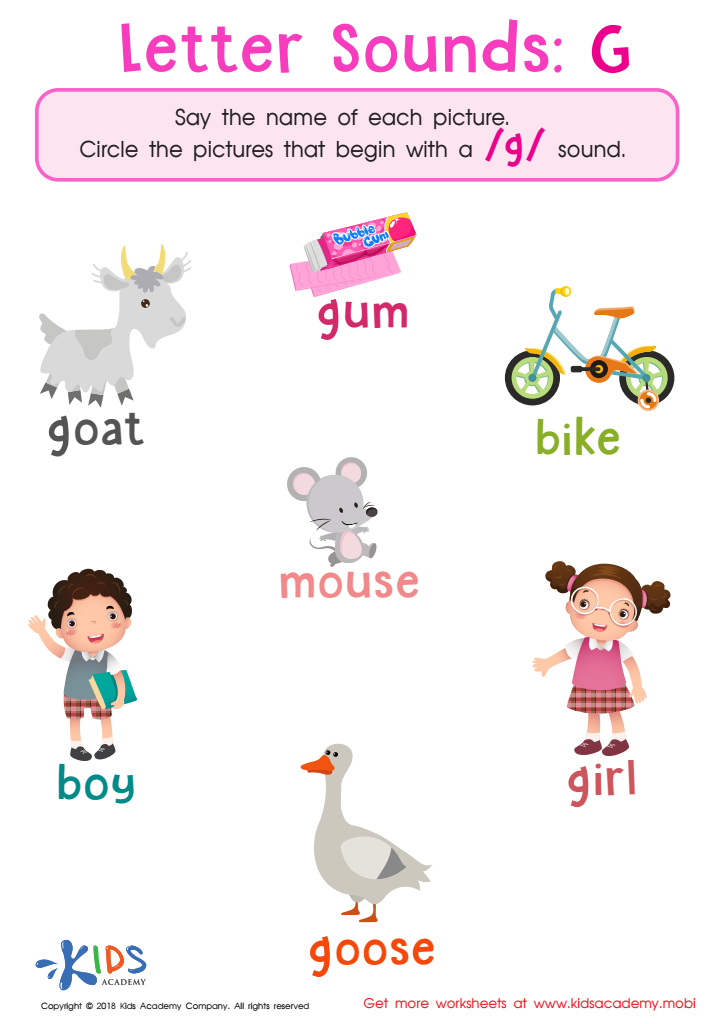

Letter G Sounds Worksheet
Reading skills development, particularly mastering the alphabet, is crucial for children aged 3-9 as it lays the foundation for all future learning. During these formative years, children are incredibly receptive, making it an ideal time for parents and teachers to engage with them in reading activities. Understanding the alphabet enhances a child's phonemic awareness, enabling them to decode words and develop stronger vocabulary skills.
Parents and teachers should care about this developmental stage because strong reading skills are correlated with academic success across all subjects. When children can recognize letters and their associated sounds, they gain the ability to read independently, fostering a love for books and learning. This early exposure helps nurture critical thinking and comprehension skills, essential for enhancing their cognitive abilities.
Furthermore, fostering reading skills supports social and emotional development. Children who can read often experience higher confidence, improved communication skills, and enhanced relationships with peers. Investing time in alphabet recognition and reading activities not only creates a positive learning environment but also equips children with the necessary tools to navigate their educational journey successfully, paving the way for lifelong learners. Thus, promoting reading skills should be a priority for parents and teachers alike.
 Assign to My Students
Assign to My Students





.jpg)











